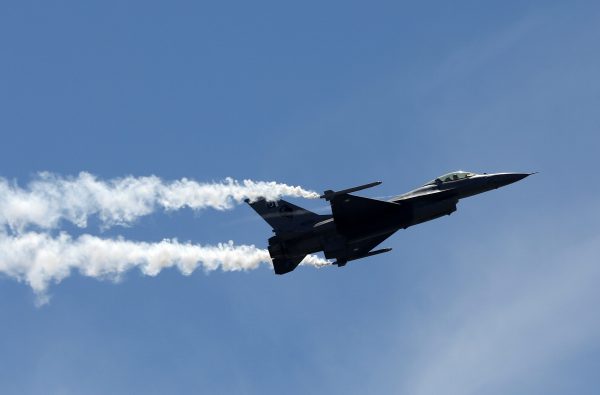Pakistan then retaliated by downing one Indian aircraft and capturing one Indian Air Force officer who was later released as a ‘peace gesture’ by Prime Minister Imran Khan. The pilot’s return to India has de-escalated the crisis temporarily though it remains unclear what comes next.
India has now signalled its intentions to use military force on terror camps deeper into Pakistani territory. Unless the Pakistani state acknowledges the presence of terrorist groups like Lashkar-e-Taiba and Jaish, and makes a serious effort to arrest the leaders and ban the groups, a military confrontation with India in the future is inevitable. How did India arrive at this moment?
In 2016, when over 20 military personnel were killed in Uri, Kashmir, India allegedly responded through shallow strikes on terror launch pads on the Pakistani side of the Line of Control.
As the number of encounters between Indian security forces and militant groups has sharply increased since 2015 while recording a higher number of military casualties, India is being forced to wrestle with more than just diplomatic initiatives. Much of Indian diplomacy has sought international condemnation for Pakistan’s actions but its policy of strategic restraint is gradually being challenged.
Pakistan uses its nuclear weapons as an instrument to deter Indian retaliation while waging a proxy war in Kashmir by sponsoring various terrorist groups. Threats from the Pakistani side are nothing new but they do represent Pakistan’s preferred approach to India. Repeated attacks on Indian security forces and the growing radicalisation of Kashmiris pose serious security challenges for India.
As these attacks become more brazen, India’s preferred policy of exercising restraint is beginning to fall short. The window of opportunity to punish Pakistan for its support of militancy is closing. The question now is whether India can exercise a degree of strategic autonomy and compel Pakistan to make concessions in a limited conflict while remaining under the nuclear threshold. Obviously this is a risky venture and would have to be weighed seriously. But after the Balakot attacks, it certainly cannot be ruled out of any future Indian strategy.
These attacks also reflect a sharp polarisation and growing divide in the country’s internal debates on Pakistan. Indian political parties are engaged in shrill rhetoric, and ideological warriors from the left and right are playing politics with the lives of soldiers while the wounds of Kashmir fester.
Many of the challenges India faces today can be traced back to some of the key developments in Kashmir over the past two years.
2018 was a year of continuity in Kashmir’s perilous decline into violence. Encounters between militants and Indian security forces were routine. The year was recorded as one of the bloodiest years in a decade with 400 people, mostly militants, killed. This was the highest casualty count since 505 people were killed in 2008. The murder of peace-loving Kashmiri journalist Shujaat Bukhari was another shocking reminder that no one would be spared from the carnage.
Since the mass mobilisation of Kashmiri youth at the 2016 funeral of Burhan Wani, former commander of the militant group Hizbul Mujahideen, radicalisation among educated Kashmiris is becoming a central issue. The radicalisation of intellectuals — such as Mohammad Rafi Bhat, an assistant professor in sociology at Kashmir University who was killed in a May 2018 encounter with Indian security forces after joining Hizbul Mujahideen — may reflect changes in the organisational capability and recruitment methods of these terrorist groups.
Along with the dangers posed by local militant organisations, the possibility of the Islamic State (IS) and al-Qaeda expanding their influence over networks of local militant groups cannot be ruled out. While controversy over IS presence lingers, the standard IS black flags have made an appearance at several anti-India demonstrations. While officials in New Delhi do not see any immediate threats emerging from IS, analysts caution that dismissing the influence of this group would be folly.
Militant groups like the Hizbul Mujahideen and Jaish-e-Mohammad have close connections to al-Qaeda, which makes Kashmir and South Asia fertile ground for al-Qaeda inspired attacks in the future. Al-Qaeda created its local Kashmiri cell, Ansar Ghazwat-ul-Hind, in 2017 under the leadership of Zakir Musa. Musa was initially a member of Hizbul Mujahideen until he decided to make a break with that group and assume the leadership of Ansar Ghazwat-ul-Hind. While the group’s membership is small (around 12 individuals), it still poses a radical threat ideologically.
Pakistan’s domestic politics remain a cause of serious concern for India. When Imran Khan was sworn in as Pakistan’s new prime minister in August 2018, initial signs suggested Pakistan and India might rebuild their divisive relationship from a position of mutual reconciliation. But developments have since proved otherwise and the status quo persists.
While Khan asserts his willingness to negotiate with India through peaceful dialogue, he is equally vocal in his condemnation of Indian security forces’ human rights violations in Kashmir. India, on the other hand, insists that Pakistan must first recognise the threat posed by violent Islamist extremists operating within its borders before any progress on talks can be made.
Given neither side is willing to set aside their country’s interests in favour of improving the lives of the people of Kashmir, a negotiated settlement that genuinely addresses the interests of all stake-holders seems unlikely at this moment or in the foreseeable future.
Ayesha Ray is Associate Professor in the Department of Political Science at King’s College, Pennsylvania, United States.

